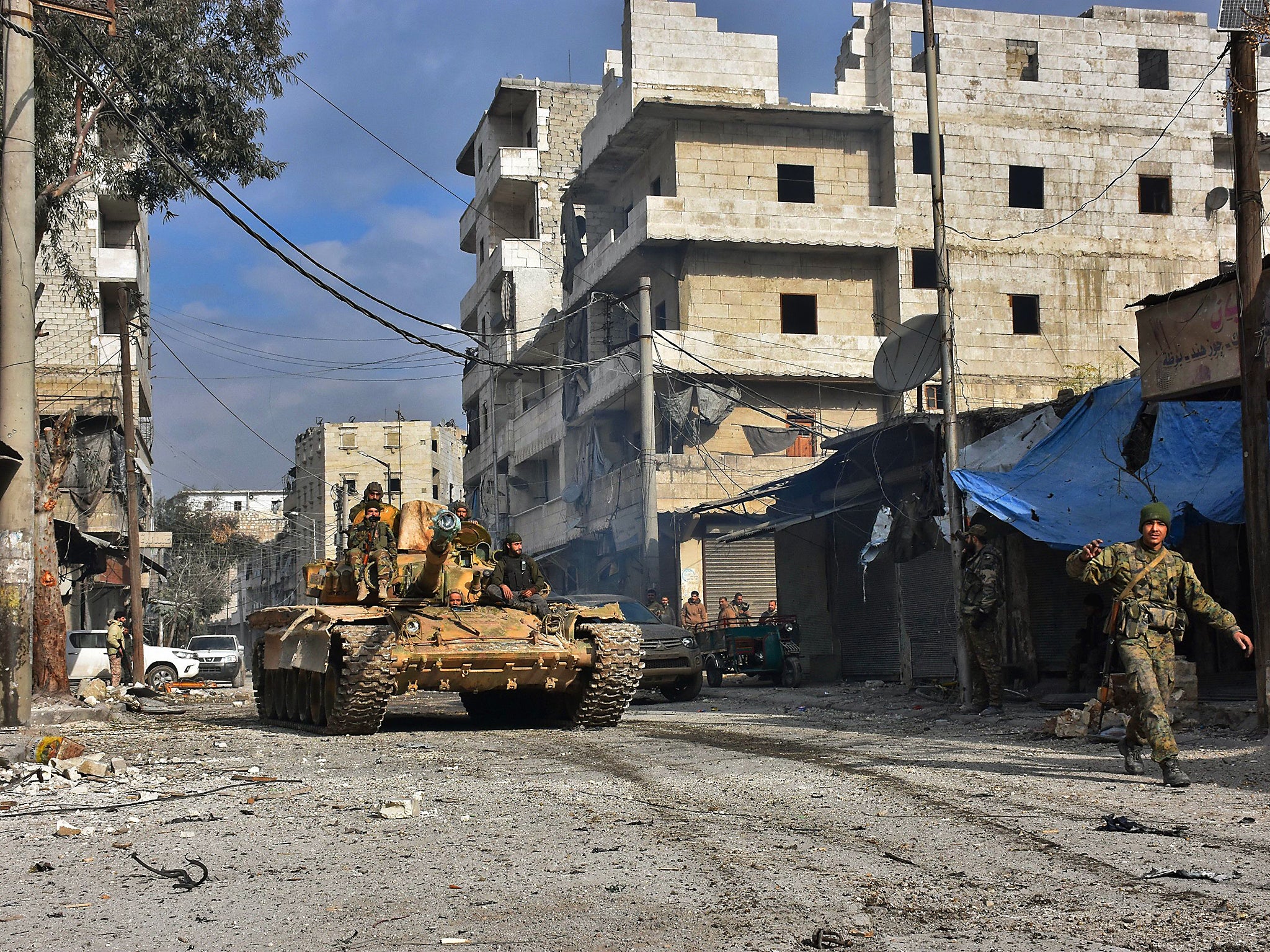If Assad takes eastern Aleppo he'll think he's won the war
The insurgents are losing because Turkey, Saudi Arabia and Qatar are not coming to help them


The Syrian armed forces are close to capturing the remaining rebel-held districts in the enclave of east Aleppo, bringing them their biggest victory in five years of war. The insurgent armed forces, that were originally estimated to number between 8,000 and 10,000 fighters, have been retreating or giving up more readily than had been expected. It is still possible that a hard core will hold out in the ruins, but President Bashar al-Assad will be eager to crush any remaining resistance so he can present the fall of east Aleppo as a decisive turning point in the conflict.
Will this be true? There are so many players with such diverse agendas in the Syrian civil war that past “turning points” have turned out to be no such thing. But what is truly important about what we have just seen in Aleppo is that the outside allies of the armed opposition to Assad – Turkey, Saudi Arabia, Qatar and, in a somewhat different category, the US - have not come to the rescue of the rebels whom they have previously supported.
Over the last five years it has been foreign powers and not domestic parties in Syria who have dictated who is winning or losing at any particular moment. When Assad was losing he went to the Russians, Iranians, Iraqis and Hezbollah and asked for more support. Likewise, the insurgents looked to their external allies when they were on the retreat. This time round this has not happened. The Russian military intervention in September 2015 finally and permanently tipped the balance of power Assad’s favour.

Turkey, unsupported by any foreign power and enmeshed in its struggle with the Kurds and Islamic State, has been largely mute about the fate of east Aleppo. Its main concern is the de facto Syrian Kurdish state that stretches across northern Syria just south of its frontier. The failed military coup of 15 July and the consequent purge makes it dubious how far President Recep Tayyip Erdogan can effectively intervene at this stage in the war.
Saudi Arabia took over in 2013 from Qatar as the biggest Arab ally of the insurgency. Until quite late in the day, the Saudis and the Arab Gulf states remained convinced that Assad would be defeated and overthrown like Muammar Gaddafi in Libya in 2011. They exaggerated the likelihood of US military intervention against Assad though President Obama had made clear his wish not to be sucked into another quagmire in the Middle East after the US experience in Iraq and Afghanistan.
In reality, Assad was always likely to stay in power because the upper ranks of his regime were united, he had a powerful army but, above all, because Russia and Iran were always more committed to his survival than Turkey, Saudi Arabia, Qatar and the US were to regime change.
But there are limits to Assad’s military success. This has been underlined by the recapture of the ancient city of Palmyra by Isis fighters who are once again executing captured Syrian soldiers in the streets of the modern city. The Syrian army, like all other combatants in the Iraq-Syrian civil war, is short of troops to replace casualties. This is one reason why men of military age leaving east Aleppo are being conscripted straight into the army.
The conflict was and remains a civil war, primarily sectarian between Sunni and the rest but with ethnic and social aspects. The Syrian security forces may have taken the poorest and most religious part of Aleppo, but the countryside around Aleppo is largely Sunni. Better off urban areas tended to support the government, while the rural Sunni districts are the bed rock of the revolution.

These districts are likely to fight on, particularly when government forces move against Idlib province to the west of Aleppo city. These are heavily populated Sunni areas close to the Turkish border and will probably still be able to get supplies from Turkey. The more territory the Syrian army takes, the more it will have to hold and defend. Its enemies hope it will be vulnerable to guerrilla war and will never be able to reassert its hold over all of Syria. They may be right – much depends on the attitude of foreign powers – but many Syrians have always said that the struggle for Aleppo would decide the war. They may well be right.
Join our commenting forum
Join thought-provoking conversations, follow other Independent readers and see their replies
Comments
Bookmark popover
Removed from bookmarks